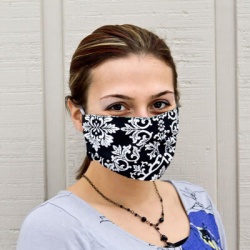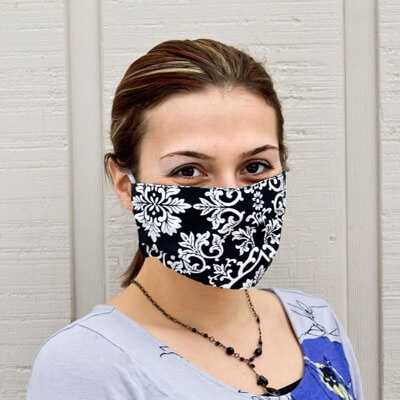
The facts about protective masks
Posted: Sun, Apr 12, 2020 2:04 PM
(The following is news analysis by decorahnews.com's Paul Scott):
The challenge of covering the coronavirus epidemic is that the situation is always changing--sometimes from day-to-day, even occasionally hour-by-hour. So the information you write at 10:00 a.m. might no longer be accurate at 3:00 p.m.
In no case has the expert guidance varied as much as it has with the wearing of masks. That's due in part to the fact that there are many different types of masks.
The masks worn by doctors and other medical personnel are N95 respirator masks which fit tightly to the face. That means they're the most effective, blocking 95 percent of particles of 0.3 microns or larger from getting past the mask. An N95 mask is designed for medical workers who interact with multiple patients. These masks should be reserved for health care workers only and not worn by the general public!
On the other hand are the various cloth or homemade masks, which protect against transmitting the coronavirus unintentionally if you show no symptoms. The American Lung Association says, "Wearing a mask does not mean we should stop other public health measures, including frequent hand washing, staying at home and social distancing when you do have to venture out in public." Local health officials reinforce that message, with one stating that the worry is that the masks will give people a false sense of security and they will stop taking the other steps to prevent COVID-19.
Many volunteer groups have been sewing homemade masks and those efforts are appreciated by everyone. Keep in mind, however, the masks are not intended for medical personnel and their effectiveness in preventing a wearer from getting the coronavirus can vary widely from mask to mask. But if you're practicing all the other recommended public health measures, wearing a mask is another way you can respond to the coronavirus.
Copyright © - decorahnewsarchive.com. All rights reserved.| Terms Of Use Statement.

Site designed and maintained by Iroc Web Design Services©.
Your Small Business Web Design Solutions.™
Site designed and maintained by Iroc Web Design Services©.
Your Small Business Web Design Solutions.™


